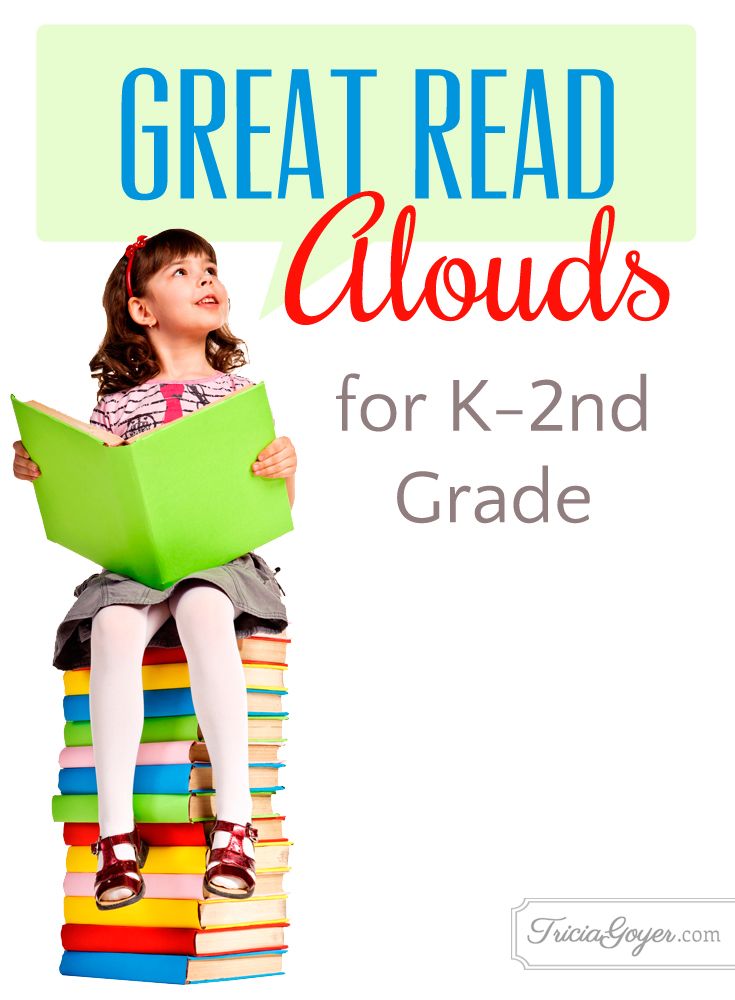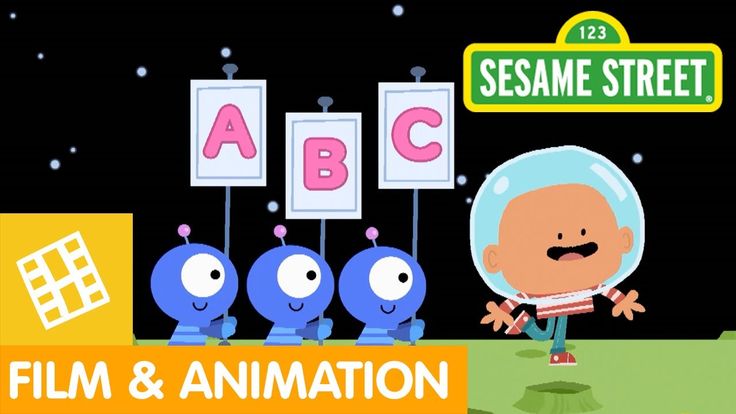Reading aloud children
10 Tips for Reading Aloud with Children
By NYPL Staff
January 22, 2021
World Read Aloud Day Art © 2020 Scholastic Inc
On February 3, 2021, The New York Public Library will be joining Scholastic, LitWorld, football champion, and literacy advocate Malcolm Mitchell, along with families and classrooms around the world, in celebrating World Read Aloud Day, which highlights both the importance of reading aloud and the many benefits that come from it! Created 12 years ago by LitWorld, a nonprofit organization dedicated to bringing people together through stories, and sponsored by Scholastic, the global children’s publishing, education, and media company, World Read Aloud Day is celebrated across the globe.
Making reading a pleasurable habit is one of the most important things you can do for the child or children in your life and sets them up for lifelong readership. Here are the top 10 tips for reading aloud according to our librarians.
1. All reading is good reading.
That includes books with commercial characters, comics, and nonfiction.
2. Find a comfortable space to read together.
The love of reading is built around our cultural connection to books and hearing stories. Being in a cozy environment while reading will help create those loving connections. It’s also good to carry a book with you wherever you go—reading in a crowded space like a busy subway can soothe and distract.
3. Slow down.
It takes time to process what’s happening on the page. You can pause on a page to look more closely at pictures before turning the page.
4. Ask and answer questions together.
If you come across a word or concept your child or students don’t know, ask them what they think it means. And if you don’t know, it’s OK to say that! Explore unknowns together: these moments are opportunities to discuss the book and what is happening in connection to the world around us and capitalize on curiosity.
5. Be yourself.
You don’t have to be an entertainer while you’re reading a great book! This is especially true when reading one-on-one with a child.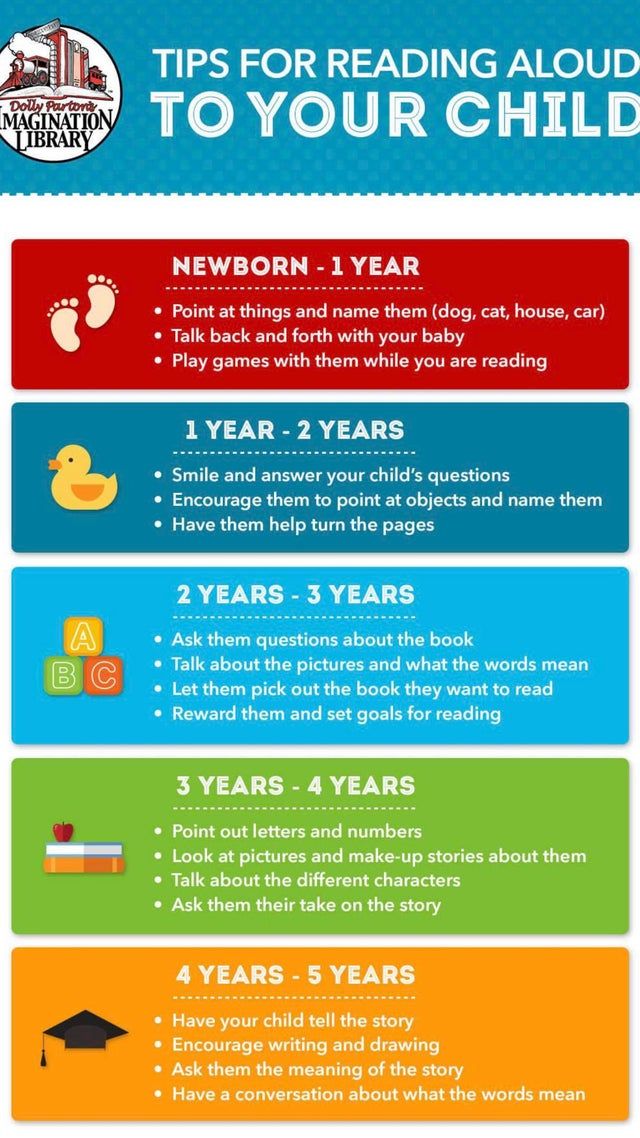 The bond already exists and the moment is special because it is your voice.
The bond already exists and the moment is special because it is your voice.
6. Read ahead!
Rhythm and meter are part of the magic of storytelling, so a little pre-reading can make a big difference. Flip through the pages before you start so you know what happens in the story and can check that it’s appropriate for your audience and moment. This will help you identify key moments for social-emotional learning.
7. Embrace wordless picture books.
Books without words are an opportunity for you and your child to invent a new story each time. Wordless picture books are also a great opportunity to think and talk about what is happening—and to predict what will happen next!
8. Don’t worry about age or grade level.
Even if a book isn’t entirely age-appropriate or seems a little advanced, you can still try reading different parts of it each time. You also don’t need to rush into bigger books because they are labeled as being more age-appropriate. If you’re looking for your next great read, take this opportunity to explore lists like the Scholastic 2021 World Read Aloud Day Book Picks and our list of 2020’s Best Books for Kids for favorites old and new.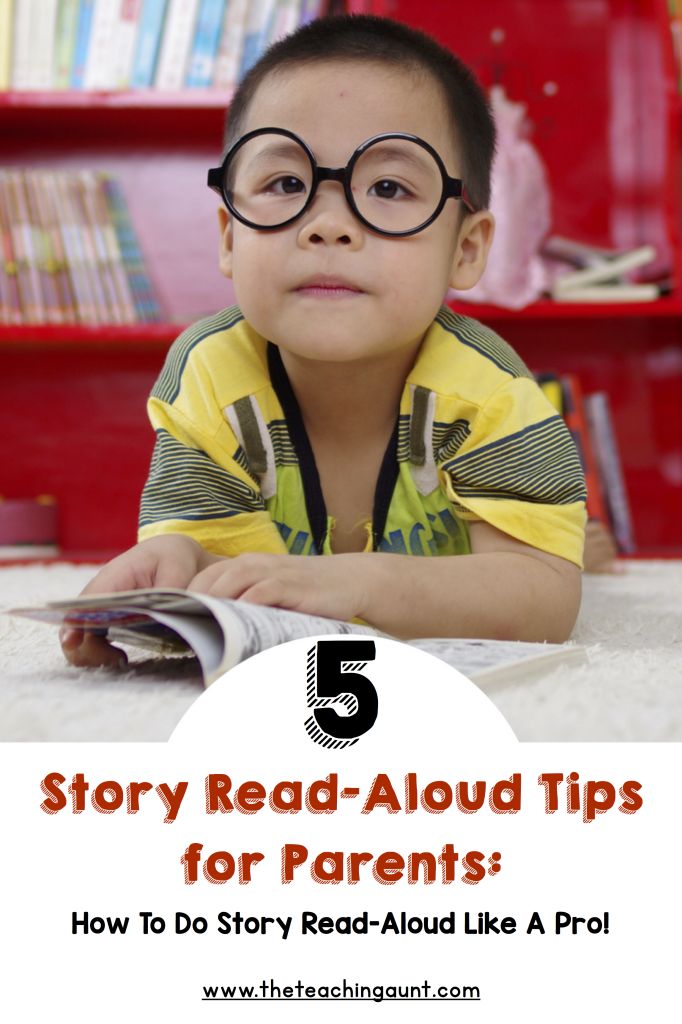
9. You don’t have to finish a book.
Don’t make reading a chore! Sometimes the best thing to do is to stop. If your audience is running around or not interested, come back to it later or ditch it entirely! You can even come back to it much later: revisiting stories at a later age can create an entirely new and wonderful experience.
10. Make reading aloud part of your routine.
This is especially valuable for our littlest ones, who crave structure for comfort and early learning. Make bedtime or tummy time a good time for reading. Plus, if children see you reading, you’re modeling great reading behavior that sets the foundation for future readership.
We look forward to celebrating World Read Aloud Day with you on February 3, 2021! To learn more, visit the:
- Scholastic World Read Aloud Day website at www.scholastic.com/worldreadaloudday
- LitWorld World Read Aloud Day website at www.litworld.org/worldreadaloudday
The benefits of reading aloud to your kids : NPR
The benefits of reading aloud to your kids It's not always easy to convince kids that reading isn't a chore.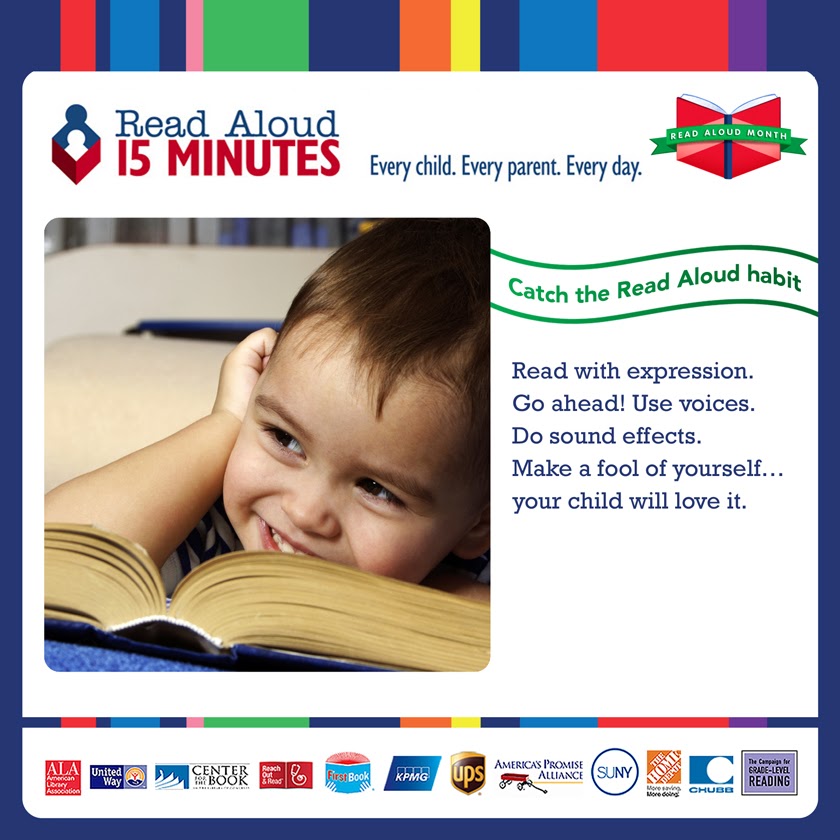 But reading aloud can help. Here are a few ways to help you find joy — and value — in reading aloud as a family.
But reading aloud can help. Here are a few ways to help you find joy — and value — in reading aloud as a family.
How reading aloud can help you bond with your kids and make them better readers
DjelicS/Getty Images
We've all heard about the benefits of learning to read quietly and independently. A big part of learning at school is all about reading, but it's not always easy to find time for more reading at home.
Families have busy schedules filled with after-school activities and homework. Plus — let's be honest — with all the tech at kids' fingertips and school days already filled with required reading, it can be hard convincing kids that reading isn't a chore.
But Keisha Siriboe says there is a way, and it doesn't have to be independent or quiet! Her solution: reading aloud as a family.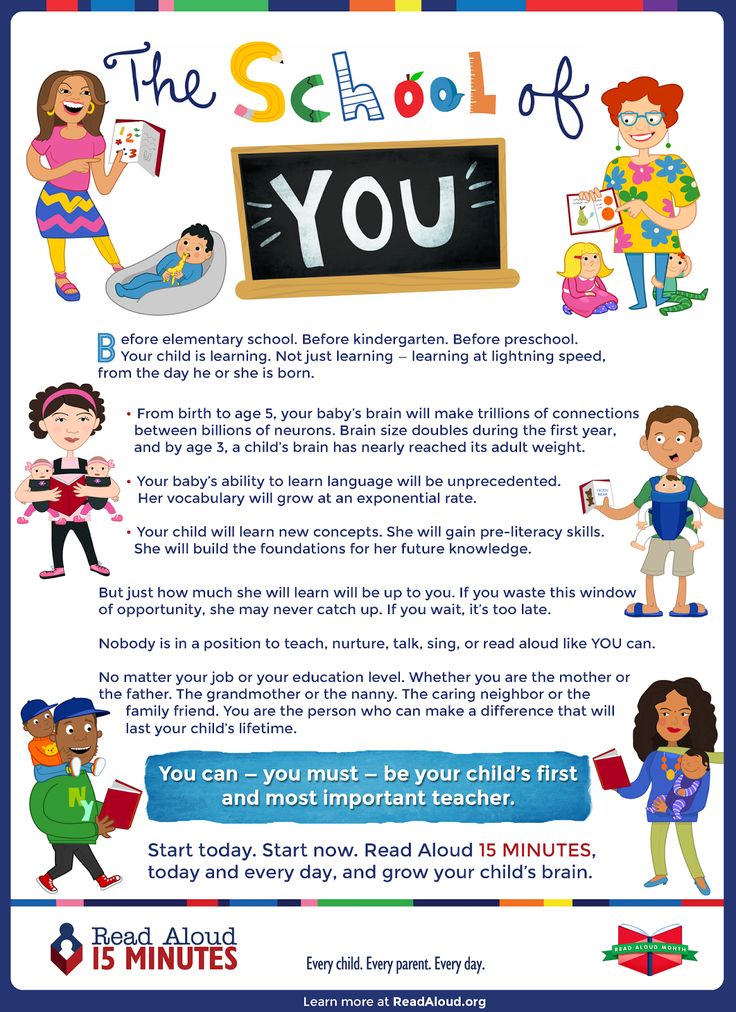
Explore Life Kit
This story comes from Life Kit, NPR's family of podcasts to help make life better — covering everything from exercise to raising kids to making friends. For more, sign up for the newsletter, and follow @NPRLifeKit on Twitter.
Siriboe is a Baltimore-based early childhood literacy consultant with a Ph.D. in early childhood education. She has researched education strategies and student leadership development all over the world and says reading aloud can help people with stress management, hope and resilience.
Reading aloud is the best bang for your buck, Siriboe says, adding that she hasn't seen anything yet that gives a higher return on investment.
The emotional benefits of reading aloud
Reading with your child is a practice that creates space for deeper independent learning and exploring. It doesn't matter if it's a traditional book, graphic novel, non-fiction or historical fiction, it all counts. What matters most is taking the time to dive deeper.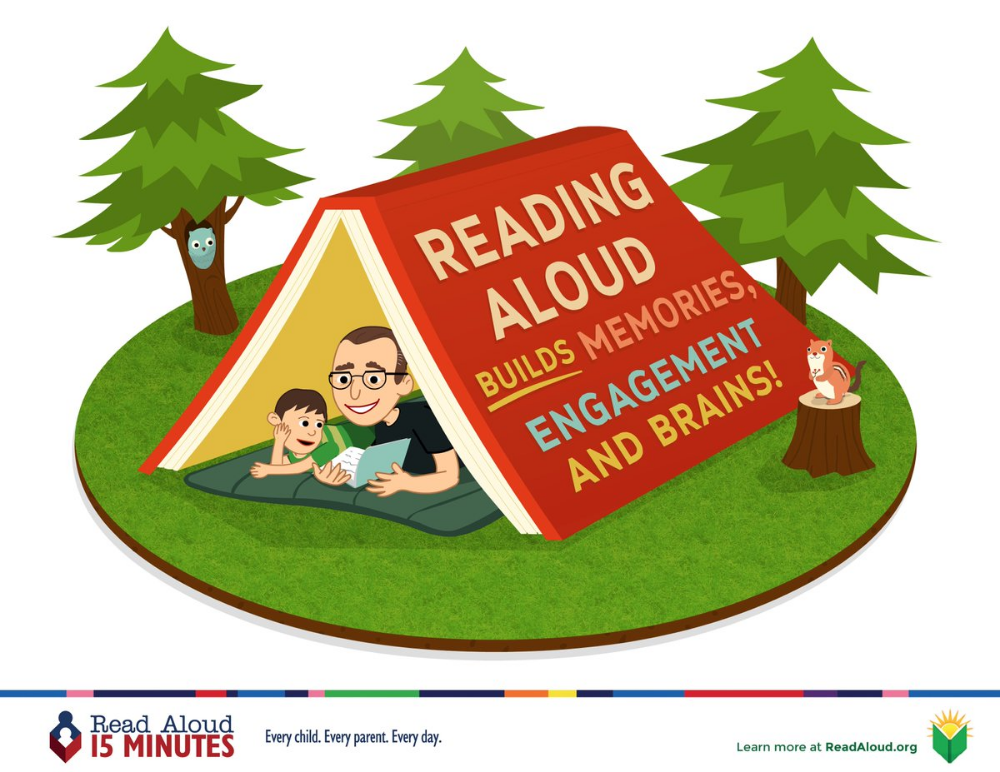
Use reading aloud to start conversations that can help your child deal with the now of wherever we are in the world. It could lead to something you may not have expected. For example, when it comes to anxiety and worry, a caregiver could use a picture book that specifically deals with that topic and turn that into an opportunity for a child to share what worries they are carrying.
Reading aloud is one of the few spaces that checks all the boxes in terms of social, emotional and mental health. For Siriboe, the simple act of sharing your love of reading with your child is bigger than just literacy. It's another expression of love and a tool for helping kids navigate the world.
Talk, read, play and sing
There's more to reading with your kids than just the words on the page. Before you dive into reading, try talking with them about the story or topic. miniseries/Getty Images hide caption
toggle caption
miniseries/Getty Images
There's more to reading with your kids than just the words on the page. Before you dive into reading, try talking with them about the story or topic.
Before you dive into reading, try talking with them about the story or topic.
miniseries/Getty Images
Siriboe likes to break down the global possibilities of reading into four key components:
Talk. She says take a moment to talk about the subject matter of the book, comic or recipe with your kids. If the book you're going to read is about wellness or meditation, you may want to share some of your favorite breathing exercises or ask your kiddo what coping skills they may have learned at school.
The next component is to read. Start looking at the words, finding the characters, settings and storyline of the book. Explore how the characters in the story engage with each other and their environment.
Then play. Perhaps you and your child want to role-play some scenarios of what the character is experiencing in the real world or explore what it would be like to live inside the character's world.
The last thing is to sing. Come up with your own song or use some online resources to find some silly songs that can help you bring a story to life. Siriboe emphasizes that this whole experience should be filled with joy and laughter.
The goal is to go past the idea of phonetics alone and really think about bonding with your child. That may mean the child gets to lead instead of the adult. At the end of the day, both the caregiver and child should hopefully be having fun.
The benefits of reading aloud for neurodiverse learners
It's important to remember that every child learns differently. Siriboe says parents may need to think outside the pages of a book to connect and help a neurodiverse child thrive. Allowing kids who learn differently opportunities to experience success within literacy can help build confidence and spark that fire for reading and storytelling.
Every child needs to discover what they like and who they are in the world of a story.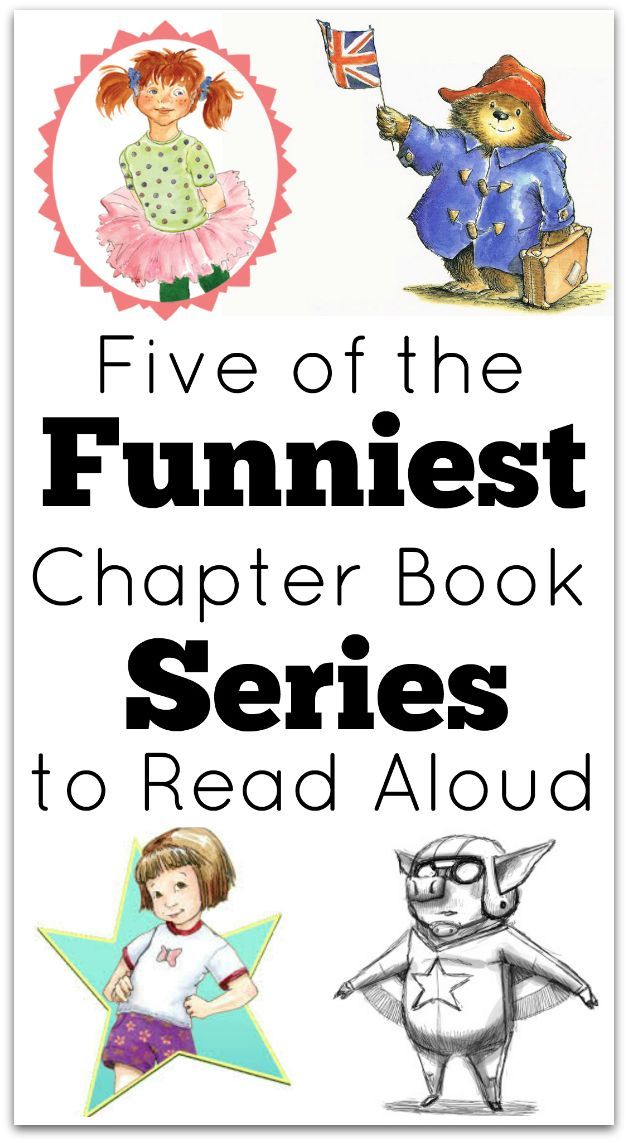 If you have a child who loves to paint, you can take them to the museum and have them write down the artists that mean the most to them. Siriboe says the next step is to go to a local library and find books about the art that inspires them and give them a chance to create their version of that art.
If you have a child who loves to paint, you can take them to the museum and have them write down the artists that mean the most to them. Siriboe says the next step is to go to a local library and find books about the art that inspires them and give them a chance to create their version of that art.
Helping kids who may not take to reading
Not everyone takes to reading right away, and many kids struggle. Siriboe says parents need to know that it is probably safe to assume that a kid who doesn't love reading has probably had a negative experience.
The first thing parents can do is help their kiddo shift their perspective. She says helping kids move from a fixed mindset about what they think their reading ability is into a growth mindset is a good starting place.
Help reassure your kid that they may not be the great reader they aspire to be yet, but they absolutely can do this. One way to do this is to incorporate aural storytelling into the fold. Invite your child to create a story that you, the adult, are willing to write down or help them use a computer or smartphone app that can do it for them while they speak.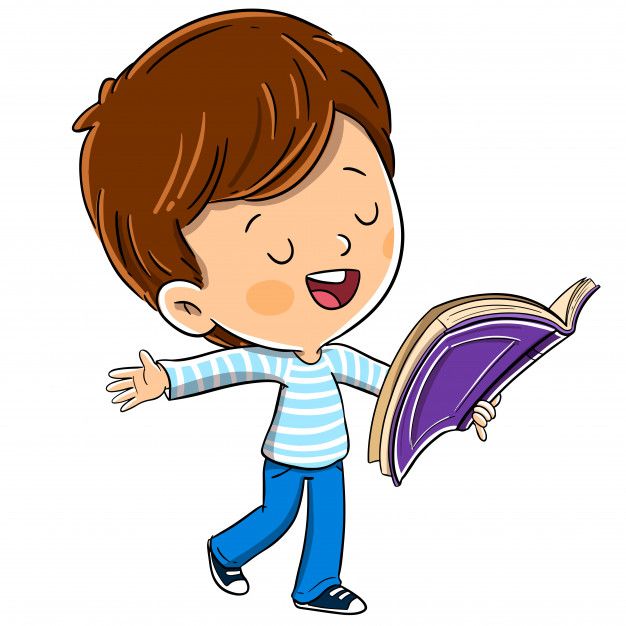 Siriboe says this helps kids to form a bridge from the inconceivable to the I can do this!
Siriboe says this helps kids to form a bridge from the inconceivable to the I can do this!
Take the step to start
It's not about how well you read or even what you read. What Siriboe wants families everywhere to know is the act of starting to read aloud and making it part of your routine for 15 minutes a day is what matters most.
Listen to the audio version of this story at the top of this page for more tips from Keisha Siriboe and get insights into what she has learned in her research.
The audio portion of this episode was produced by Andee Tagle, with engineering support from Patrick Murray.
We'd love to hear from you. If you have a good life hack, leave us a voicemail at 202-216-9823, or email us at [email protected]. Your tip could appear in an upcoming episode.
If you love Life Kit and want more, subscribe to our newsletter.
Sponsor Message
Become an NPR sponsor
8 reasons to read aloud to children
May 31, 2018 Life
Reading aloud is not just a good family tradition, but a turbo method of brain development for your child.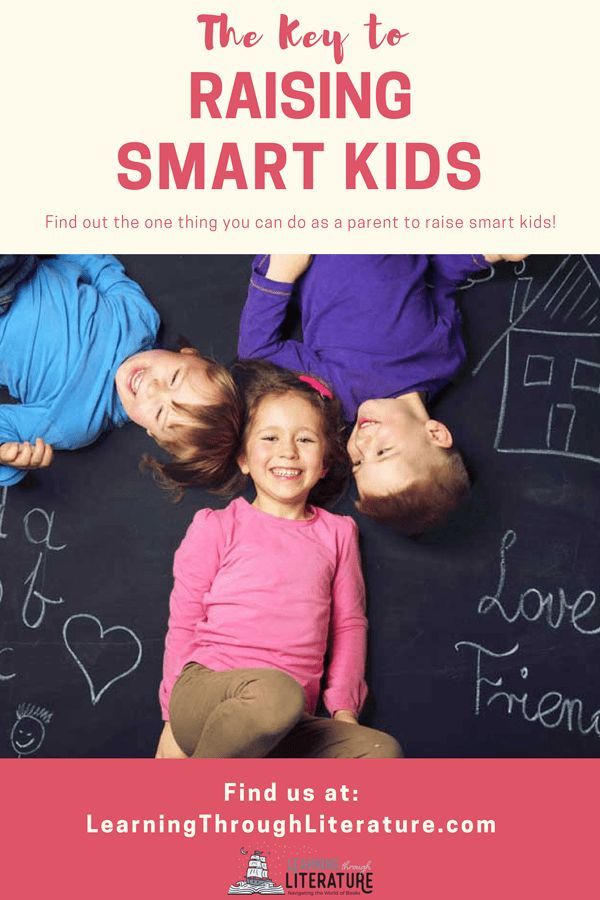
1. Expand vocabulary
The child will learn to speak in any case, listening to the speech of adults. However, children whose parents read books aloud to them express their thoughts more coherently and colorfully and hold their attention better, because book language is much more complicated than spoken language.
Oleg Ivanov
psychologist, conflictologist, head of the Center for Settlement of Social Conflicts
Reading aloud expands vocabulary, prepares for independent reading, promotes better development of concepts in children.
2. Train memory
When listening to a fairy tale or a poem, a child first remembers the characters and rhythm, and then the meaning of the work. So he gradually develops figurative and verbal-logical memory. To help your baby, ask him what story you have read recently, ask him to tell the key points. The skill of retelling will be useful to him in life. It is also useful to memorize poems. nine0003
3.
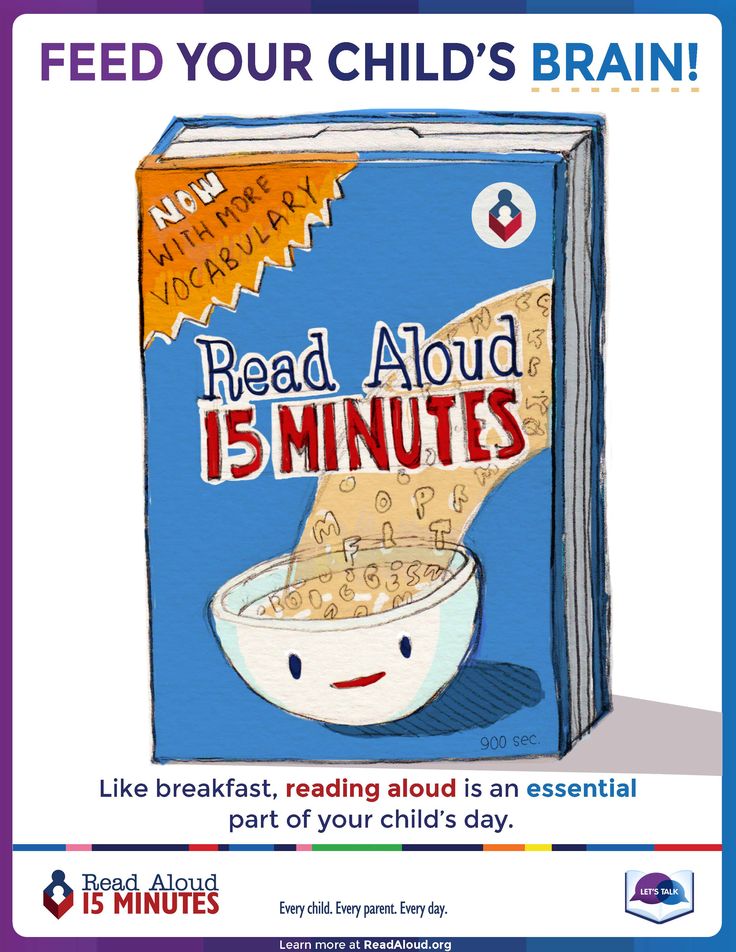 Develop imagination and imaginative thinking
Develop imagination and imaginative thinking Imagination is a complex cognitive process, the foundations of which are laid up to three years. At the same time, the scope of fantasy depends on the lived experience. In order not to miss the moment, parents should read books to their children. The events that take place in fairy tales, the brain perceives as experienced in reality. This phenomenon is known as "embodied knowledge".
Nina Shadurova
psychologist and methodologist of the educational center "Plombir"
Listening to a fairy tale, poem or story, a child learns to imagine the described situation, can play it first as it is written, and then change something in it, add something new.
4. Fall in love with reading
A book is the best friend and gift, but only a person who is in love with a book himself can fall in love with reading. Read to your child with pleasure and expression so that he understands how interesting and great it is to dive into a new unknown world.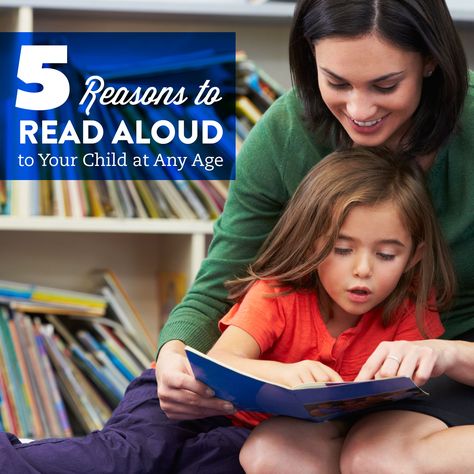
5. Broaden your horizons
From children's books we learn about space, animals, people, plants, phenomena. The child rejoices at any new information, but usually waits for texts on “his” topic. Choose books together so that the baby is more interested in listening to you and developing. Let the child ask questions as he reads: this is how he learns to think logically.
To make your child interested in listening to you, find something that will captivate him. But do not forget to alternate books to broaden your horizons.
Oleg Ivanov
6. Talk about important topics
In fairy tales, children often first encounter the confrontation between good and evil, problems of moral choice, tragedies. Therefore, it is important for the parent not to mechanically read the book, but to try to discuss it with the child. Ask how he would act in the place of the conditional Ivan Tsarevich. So he will become an active listener, develop analytical thinking and empathy.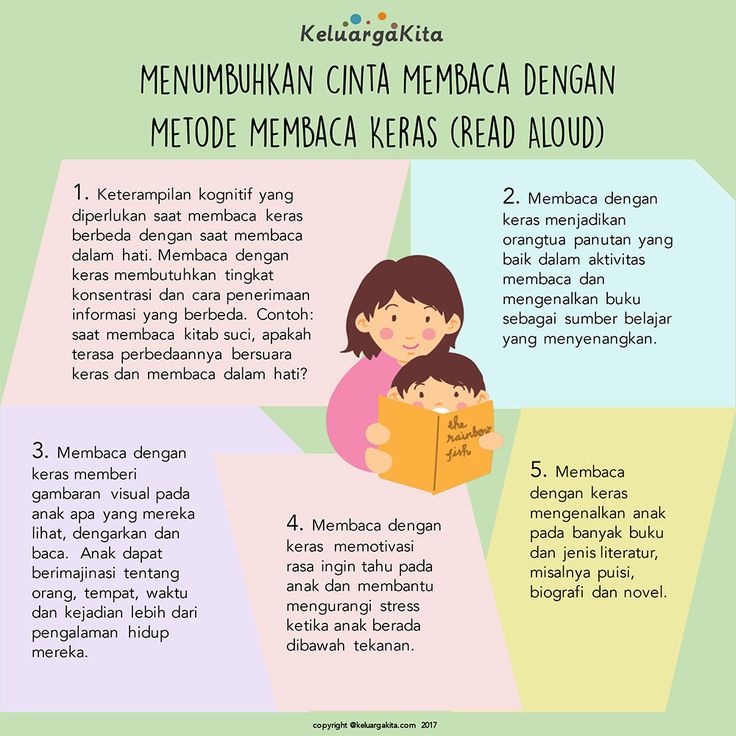
Book characters can be used to study various behavior patterns of good and evil characters, come up with an alternative ending and thus introduce an element of the game. nine0003
Oleg Ivanov
7. Tune in to sleep
Reading at night is a great family tradition. It strengthens relationships and helps all participants in the process to tune in to a sweet dream. Reading has been proven to lower your heart rate and relax your muscles by 68%. So read to your children for at least 15-20 minutes. Especially if you're at work all day.
Yulia Radionova
family psychologist
No matter what happens, the child knows that today mother is reading a fairy tale before going to bed. It helps to calm down, helps to cope with stress, strong emotions. nine0003
8. Take a break and work on yourself
When you read fairy tales to children, you switch from work tasks, relieve stress and develop your own speech. Read clearly and with expression, place accents in the sentence.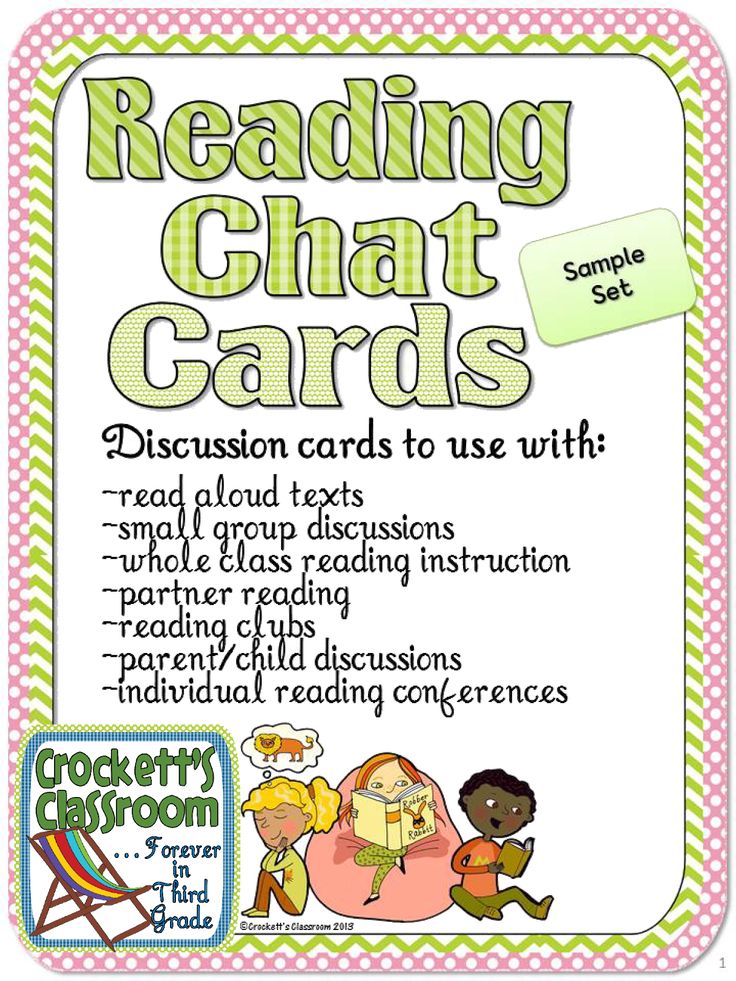 Thus, you improve diction and intonation.
Thus, you improve diction and intonation.
Elena Garanina
psychologist of the FEFU Medical Center
People who regularly read aloud speak more confidently and make fewer speech errors, as a result of which they are perceived as more authoritative and trustworthy. nine0003
Read also 🧐
- 11 useful books that will help you better understand your child
- 50 best children's books according to Hayao Miyazaki
- 7 good habits that come from reading books
7 reasons why reading aloud is the best thing you can do for your child
The first week of March is celebrated as Reading Aloud Day around the world. Our regular author Inna Pribora armed herself with scientific data and now explains why a fairly simple ritual of reading a bedtime story will allow your child to become much smarter, kinder and smarter. What else is needed? nine0003
There are many ways to read: on the subway from the phone, with a flashlight under the covers, by syllables in the classroom.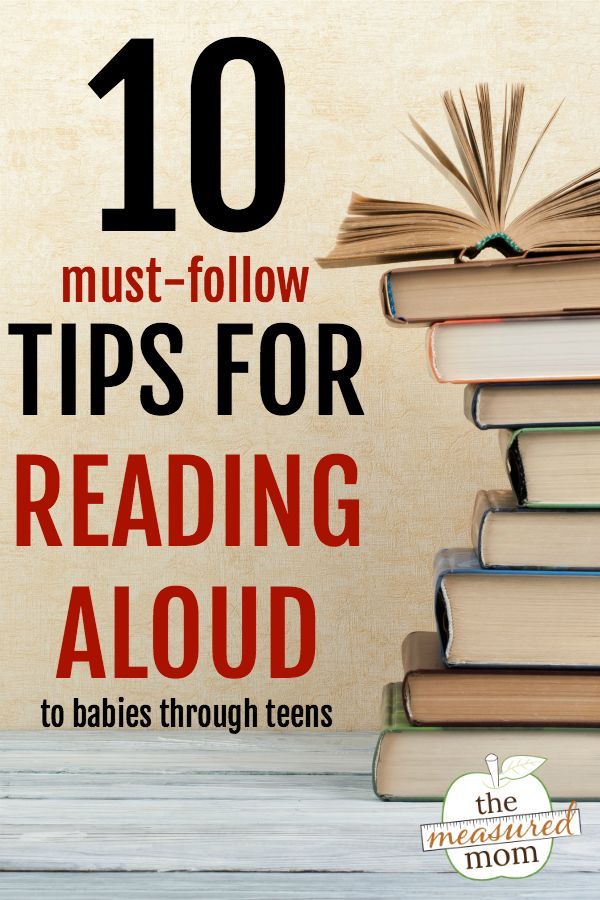 But one of the best is to read aloud to a child. The benefits are not immediately apparent, especially if you are asked for the 18th time to recite the words of the monster in the voice of the monster (it somehow works out later). But scientists are in a hurry with consolation: it is really valuable for both mental and social-emotional development of a person.
But one of the best is to read aloud to a child. The benefits are not immediately apparent, especially if you are asked for the 18th time to recite the words of the monster in the voice of the monster (it somehow works out later). But scientists are in a hurry with consolation: it is really valuable for both mental and social-emotional development of a person.
For children of past generations, the book was the only window to the world, to exotic countries, to distant galaxies, now they have many windows - just have time to close them. Well, look to see if any nastiness got in there. And any book today has cheaper and noisier competitors: quick ways to get information, entertainment that requires the inclusion of not an older family member, but only a computer. nine0003
And about reading aloud, there is a reasonable objection from tired parents of older children: “But he already knows how to read by himself! Why will I do this? Let him practice the skill." This point of view is popular.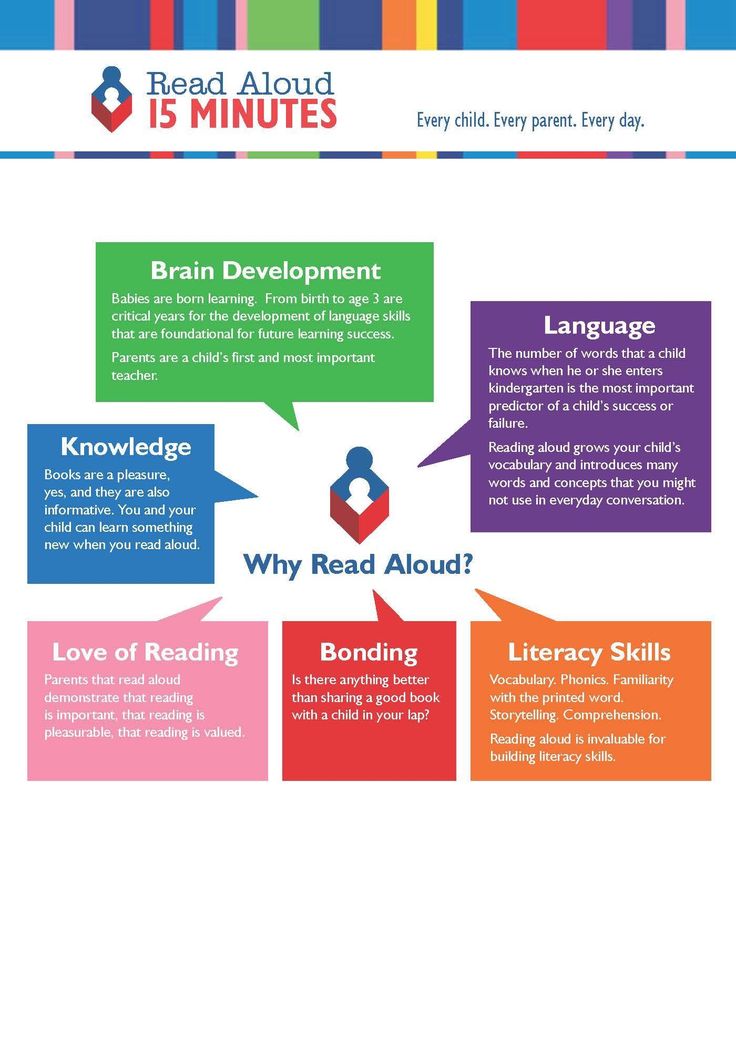 Adults read to preschoolers more actively, but already in elementary school, dads and moms leave this activity, since little Filipok seems to have already learned the letters.
Adults read to preschoolers more actively, but already in elementary school, dads and moms leave this activity, since little Filipok seems to have already learned the letters.
In fact, the level of reading with the eyes of a child often lags behind his level of understanding the text by ear. Let's say, on his own, he is ready to read only stories about Kwak and Toad, and in your performance, he delves into The Hobbit and The Secret Garden. This also makes sense. However, about everything in order. nine0003
So, why is it still worth continuing to do what people did before the era of Zuckerberg, in the era of Gutenberg - to read aloud.
1. Cognitive abilities
Reading to a child is one of the easiest ways to make him smarter. To understand how this works, you can start from verbal skills. First of all, children to whom reading is heard hear complex speech. Yes, texts about witches and dancing penguins are more complex vocabulary compared to everyday expressions “eat porridge, don’t put porridge in your hat. ” nine0003
” nine0003
According to a recent Ohio State University study, as early as five years of age, the word gap between reading and non-reading children is hundreds of thousands of language units. Scientists are scary when they say that the figure is approaching one and a half million, while they compare children who were not read at all, and children who were read five books a day. It sounds serious, if you do not take into account that a volume for three-year-olds can consist of two or three sentences and a bunch of joyful pictures. Apparently, the secret is not in quantity, but in the very fact of reading. nine0003
Simultaneously, by waving measuring devices, scientists prove that the number of words in a child's vocabulary is strongly correlated with the level of intelligence. The further, the greater the gap, because those hundreds of thousands of words with which you diligently supplied the child affect academic performance, which in elementary school consists precisely of the ability to read and understand what is read.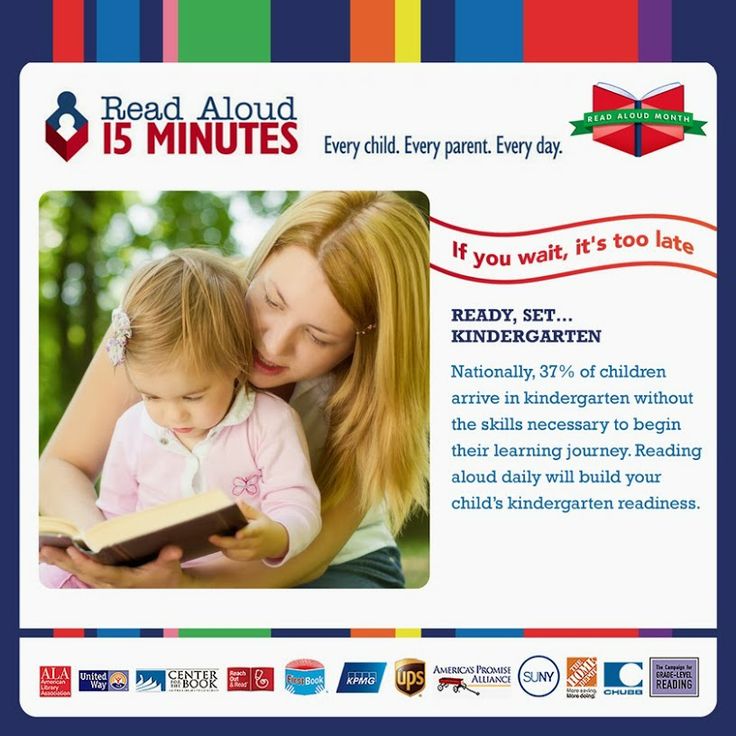 Listening, writing and speaking skills, phonemic hearing and the level of understanding of what the teacher mumbles at the blackboard - all this depends on whether the child in the family has heard complex sentences. However, this is obvious. nine0003
Listening, writing and speaking skills, phonemic hearing and the level of understanding of what the teacher mumbles at the blackboard - all this depends on whether the child in the family has heard complex sentences. However, this is obvious. nine0003
Impossible from the baby nursery rhyme "into the hole - boom!" move on to understanding the text from the textbook. Between these events, there must be a road paved with children's books
Researchers are not shy about putting language in the headlines of scientific papers that directly links children's reading and IQ: for example, a 2014 paper, a multivariate analysis of twins from 6 to 17 years old, so and is called - "Learning to read improves intelligence?", And only scientific modesty forced experts to put a question mark at the end of the sentence. nine0003
Note that there is no great distinction to be made between reading to a child as such and learning to read. Because the second just starts with the fact that dad sits down and shows how everything works in reality: you sit on the sofa, run your finger along the page and you are transported straight to the dragon.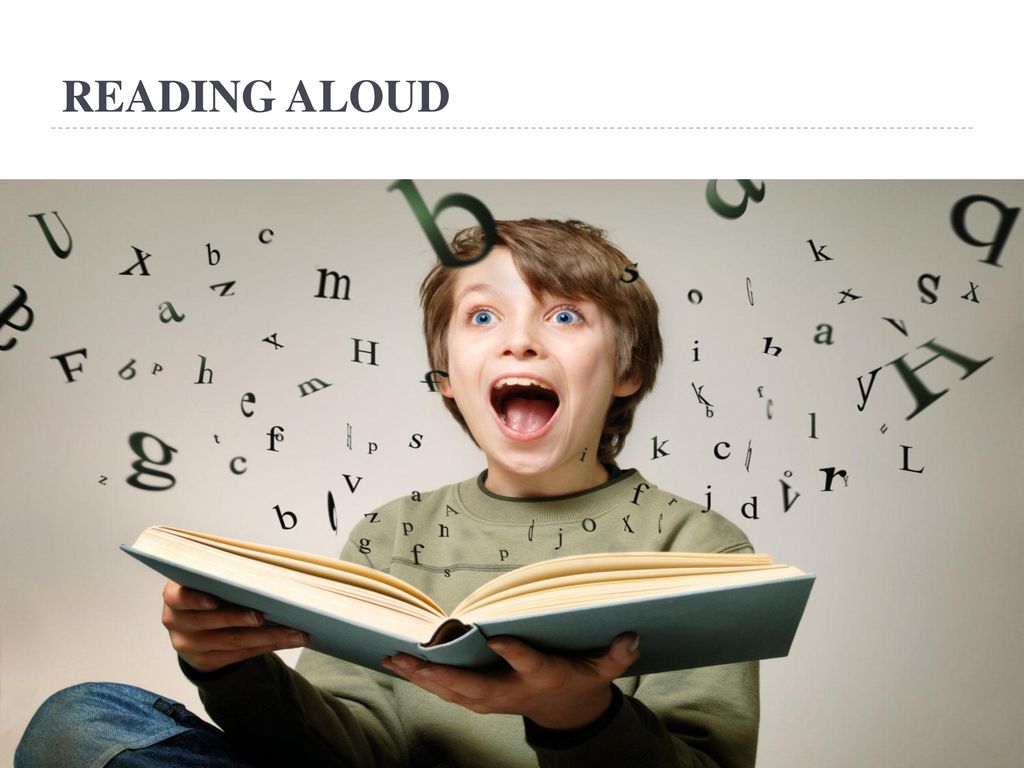
2. Empathy, understanding of others
The beauty of books is not only in intellectual experiences, but also in emotional ones. Reading helps the child to gain experience that is not necessary to face in real life. Feeling that a dragon that has just been approached unarmed is hungry and that the Holy Grail has been ripped out from under your nose is incredibly enriching. The ability to take the point of view of another, understanding his motives, his mental model develops while you are reading the story of an orphan to a child. nine0003
There is also enough research here: in Cambridge, for example, they found out that fiction is exactly the means that helps young people to pump this secret muscle - the ability to sympathize and understand others. And Dutch scientists published a work proving that young lovers of magical worlds are more sensitive and tolerant of others. Thanks to reading Harry Potter, children from primary and secondary schools were able to get rid of prejudice towards marginalized groups: at some point, you understand that "Mudbloods" and "immigrants" are a little difference.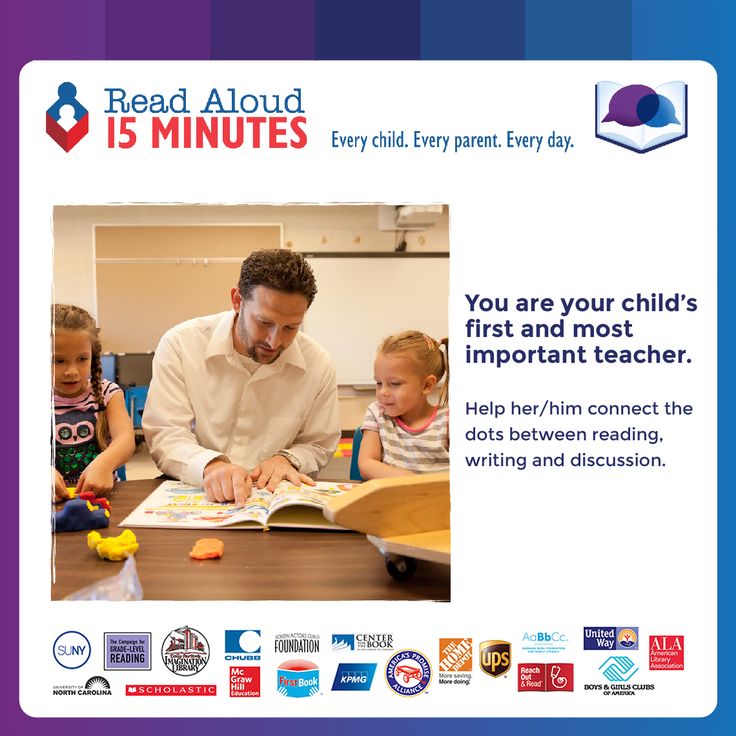 nine0003
nine0003
In general, if we talk about the current fashionable emotional intelligence, then reading fiction will give a hundred points to many special techniques. Here is a special vocabulary for talking about feelings, and searching for oneself, and empathy with others.
3. Imaginative thinking
It's great that today you can get visual evidence: you are reading to a child for a reason. Indeed, sometimes it becomes insulting: you read, but the person does not listen, as if you are not reading a fairy tale, but the washing machine is buzzing. nine0003
Excited American researchers studied children's brains with MRI scans as they listened to recorded stories and background noises. It turned out that the effect is completely different.
During reading, the brain is highly active in those parts that are associated with narrative understanding and visual images the more actively the brain responded to the story. Well, yes, studies have been conducted on young children - from three to five, but this does not mean at all that the benefits of reading disappear in older listeners.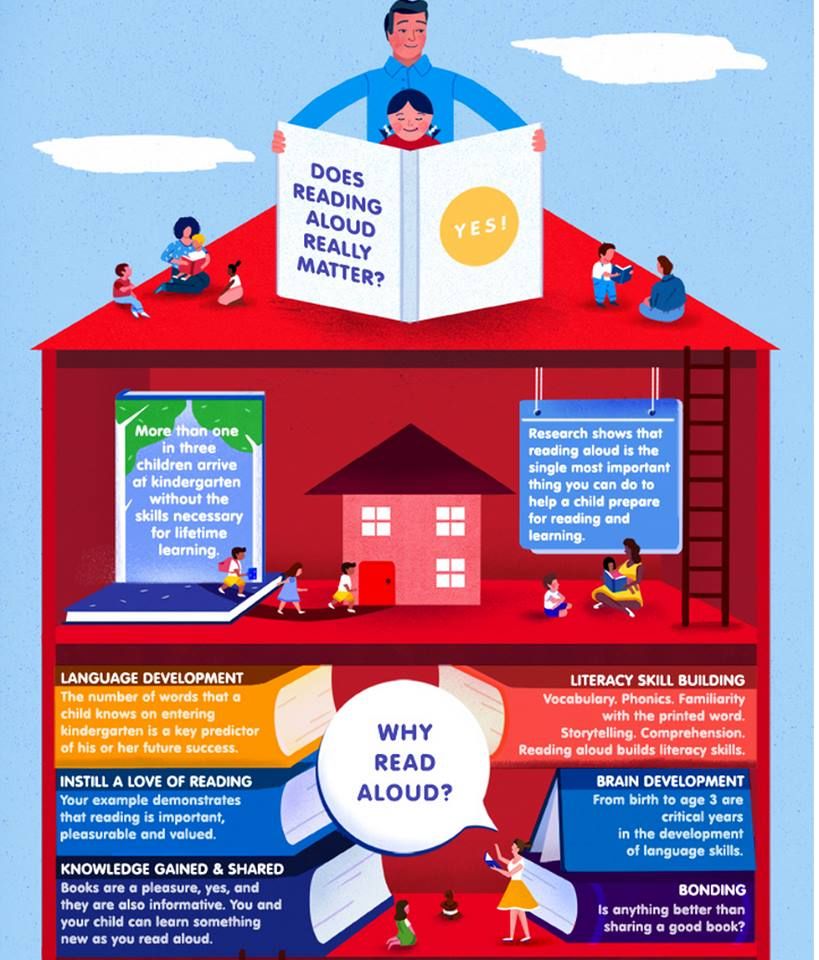 nine0003
nine0003
If you are talking about a unicorn dancing on the roof of a garage, the person needs to turn on their imagination: imagine the garage, understand where its roof is, mentally draw a unicorn and even create a certain pattern of its dance. The brain has something to get excited about.
4. Social development, attention management
Many parents and specialists tell how spoiled children are today: attention difficulties, hyperactivity, clip thinking. Although, perhaps, instead of being nervous, we could just pick up a book. There is scientific evidence that shows the beneficial effects of parental reading on children's behavior. It helps reduce the risk of developing attention problems and hyperactivity. nine0003
Experts don't quite understand why this works, but they have a few suggestions. For example, there is a version that reading together makes everyone “happier” and children need to be less mischievous in order to attract the attention of an adult.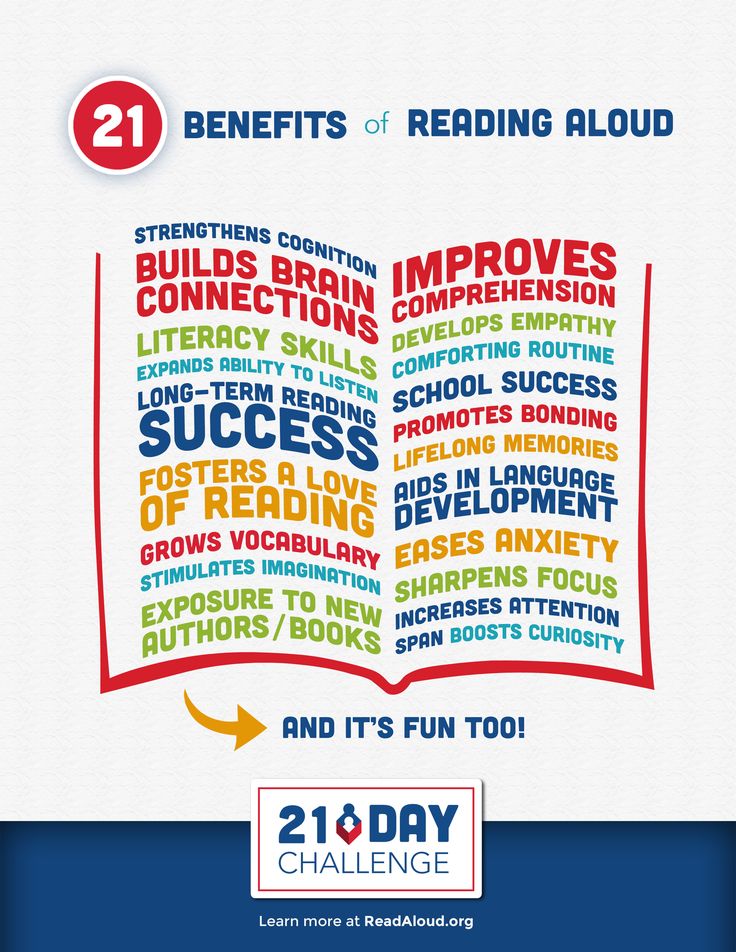 And he, in turn, gets more joy from interaction, especially when the book has a good ending. Another option: children develop better in the socio-emotional sphere, because they receive certain models of behavior in difficult situations, tools, even in the form of new vocabulary, for solving their problems. Understanding that you weren’t the only one who stamped your feet today and it’s not only hard for you to sit at the opera helps the child control his behavior. nine0003
And he, in turn, gets more joy from interaction, especially when the book has a good ending. Another option: children develop better in the socio-emotional sphere, because they receive certain models of behavior in difficult situations, tools, even in the form of new vocabulary, for solving their problems. Understanding that you weren’t the only one who stamped your feet today and it’s not only hard for you to sit at the opera helps the child control his behavior. nine0003
5. Improving memory
Listening to a parent who occasionally tries to fall asleep reads about adventures is hard work. Not only because you need to wake someone up all the time, but also because it is important to keep in mind all the bad characters that are dangerous, all possible escape routes (to suggest if anything), and the events of the previous eight volumes. And this work is not in vain for the child.
In general, the connection between memory and reading aloud has been documented in people who themselves read aloud.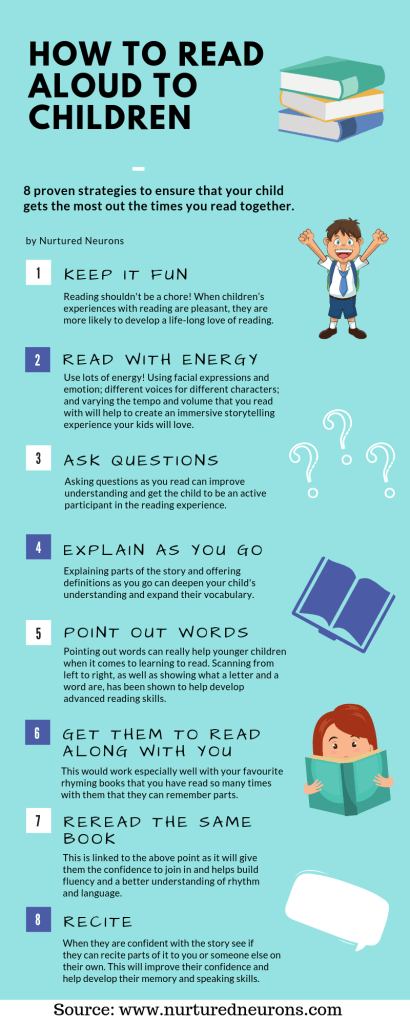 There is reason to believe that this affects the memory of listeners no less positively. nine0003
There is reason to believe that this affects the memory of listeners no less positively. nine0003
6. Stress Relief
If you're not looking for the "Blooliest Murders of the Century" collection, then reading might well help you relax. This is what the studies of British neuropsychologists tell us. Experiments, however, were carried out on adults, but there is no reason to believe that this will affect children in any fundamentally different way.
It turned out that after just six minutes of reading, the subjects’ heart rate slowed down, muscle tension decreased, and (it’s not written about, but I would like to think) they stopped jerking their legs. Reading relaxed people much more effectively than walking in the fresh air or listening to their favorite songs. nine0003
7. It's nice
Yes, of all the things we can do to make children happy, reading is one of the most wonderful. It captivates. Moves us in space and time. Allows you to stop and chat, laugh and be sad, hug or stand on your hands.